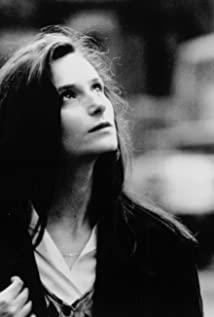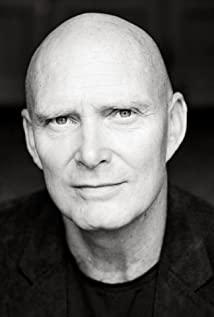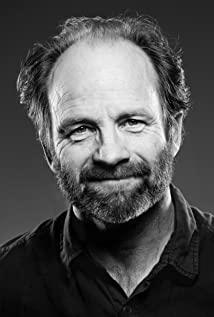The male and female protagonists are fully exposed at three o'clock; the newlyweds hid in the toilet during the wedding banquet and did a hard job; the female patient seduces the male doctor naked;
That's right, this is the plot of "Breaking the Waves", which once caused a sensation at the Cannes Film Festival, which has always been known for its "literary and artistic coldness and heavy speech". Although it failed to win the Palme d'Or, it also won the Jury Prize. At that time, the European and American film critics even generally believed that it would be a big pity in 1996 to not go to the cinema to watch the film.
What kind of director would direct such a work? "Lars von Trier", when the name came out, you must be surprised. If Karl Dreyer was the pioneer and founder of Danish art cinema, now Lars von Trier has become the supreme of this holy land. His "Dog Town", "The Antichrist", "The Melancholy" and "Female Addict" are all topical and magical films.
Mention Lars von Trier, and "Dogma95" will definitely be linked. This is a film movement initiated by him and several colleagues in 1995. It also stipulates ten commandments, such as no scenes, no filters, no separation of audio and video, hand-held cameras must be used, and the film size must be 35mm, etc. In short, it is to question the increasing pursuit of technology and special effects in the film production process represented by Hollywood, and to advocate the exploration of human nature and emotion. Although the movement eventually died out, and Till himself later turned his back on the precepts, its experimental and pioneering character is still to be admired. "Breaking the Waves" is not only a prelude to "Dogma95", but also a watershed in Lars von Trier's creative career.
Therefore, "Breaking the Waves" has many inheritances and attempts in form. On the one hand, it retains the abstract artistic concept advocated by Dreyer, and simplifies the characters, plots and scenes, and highlights the spiritual connotation of the film; The random and bold editing, coupled with the unique grainy feeling obtained after post-processing, makes the film have a rough realistic documentary style. At the same time, Thiel divided the film into eight chapters, each titled with a still-moving landscape, as well as the rock music of the early seventies, which is impressive.
Of course, the attempts and breakthroughs in the theme of "Breaking the Waves" are more important. The story takes place in a remote and isolated town on a small island in Scotland. Beth, a pure, kind, warm and lively but slightly neurotic girl, falls in love with Yang, a foreigner who works on an oil rig. After the wedding and honeymoon, Yang had an accident when he returned to work on the platform and was unfortunately paralyzed. In order not to compromise his wife's happiness, Yang persuades Beth to find a lover, and lied that if she had sex with someone else, it would be beneficial to her recovery. Beth didn't agree at first, but for the sake of her lover's life, she agreed to his request after struggling with her heart. She sacrificed her flesh again and again, hoping for a miracle of her husband's recovery, but all she got was the church, family, and townspeople. cast aside. In the end, in humiliation and disappointment, Beth was abused by several sailors like a self-sacrifice, and the rescue was ineffective and she died.
In this love tragedy, the love and sacrifice that Beth and her adhere to are undoubtedly the most moving to the audience. Although Beth has a history of mental illness, in the eyes of the audience, she is an innocent woman who regards love as her life. She can laugh happily after listening to her husband's snoring after marriage, and her emotions are out of control on the eve of her husband's return to oilfield work. He Chuchu is pitiful, tortured to the point of being bruised by sailors, but still thinking about her husband's illness. The most incredible thing is that she would rather betray her morality and self-respect and become a spoiled prostitute for her husband. From the wedding in the first chapter to the funeral in the last chapter, Beth practiced her ideal of love with her life and composed a tragic hymn of humanitarianism.
The tragic thing is that love and sacrifice, which are one of the most beautiful qualities in human nature, have instead become the source of Beth's suffering and death. "Breaking the Waves" reminds me of the Japanese movie "The Life of the Disgusted Matsuko", in which Matsuko, like Beth, can be so passionate and thorough for love. "No matter what kind of woman, what they long for is nothing but a feeling" is reflected and amplified in them. At the same time, they are also a bit neurotic women. The "madness" here is actually a gesture, a belief that declares to break free from bondage, unwilling to be restrained by the world, and illuminate the real human nature with the madly burning spiritual flesh, perhaps the "madness" of Matsuko and Beth is the real saint.
What Matsuko wants to break free is social values, and what Beth wants to break free is religious values. Therefore, "Breaking the Waves" is disguised as a love story, but its core is a serious religious criticism. Lars von Trier's parents were atheists, and although he converted to Catholicism, his attitude toward religion in general was always skeptical and cynical. At the same time, his predecessor, Dreyer, has always been known for telling the conflict between religion and life. Therefore, Tyre used "Breaking the Waves" to express the real desire of life due to religious constraints, and questioned the strictness and paranoia of religion.
So how does Tyre question religion? The first thing to be clear is that, like Dreyer, he has always questioned religious doctrine, not God himself. As a Catholic, the existence of God is no longer a problem. But who will represent God? Who will carry out God's will? Do the church and the clergy have the right to conduct moral judgment on the parishioners? These are the things he wants to think about and criticize. Since the Middle Ages, the secular power of the church has become larger and larger, and it has become more and more deviated from the original intention of its founding. For the sake of power and interests, it can do whatever it wants, and only then will there be successive religious reform movements in later generations.
In "Breaking the Waves", the church in the town seems to be the highest authority here. The priests and the elders of the town can criticize the words and deeds of the parishioners at will, dismiss the parishioners at will, and even pronounce the parishioners go to heaven after death. Still go to hell. Behind their seemingly devotion to their duties and beliefs is their rigid understanding of doctrine, their encroachment on jurisdiction, and their cruel restraint on human nature. Ironically, there is no bell in the local church bell tower, which the director uses to allude to the absence of God here, who has been replaced by priests and elders.
In the same way, although Beth is also a member of the church, although she is also in awe of religion, but every time she goes to the church, she does not confess to the priest, but chooses a person to mutter to herself and talk to God, acting as herself. Playing God again, finding comfort in inner struggles. It is a pity that Beth is a product of religion after all, and her kind-hearted nature has always been difficult to get rid of the influence exerted by other forces and roles. Even though she has been fighting all kinds of misfortune and pain with her pure heart and strong will, she is still torn to shreds by her deeply rooted religious beliefs. It must be mentioned here that Emily Watson, who plays Beth, as a newcomer to the screen, can interpret this role so deeply and heartbreakingly, and its powerful acting skills can be seen.
At the end of the film, Yang miraculously stood up, and a miracle appeared over the oil rig. A huge holy bell shook the world, and Beth's sacrifice was finally rewarded. "Breaking the Waves" is not only a useful exploration of film art by Lars von Trier, but also has a shocking and crazy momentum that ignores traditional morality. Its delicate emotions, simple forms and reflections on religion and human nature make this film This work is charming and heavy, reminding us to find the essential meaning of life in the mechanical numbness of life.
♑
View more about Breaking the Waves reviews










